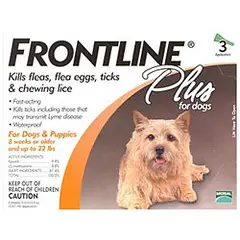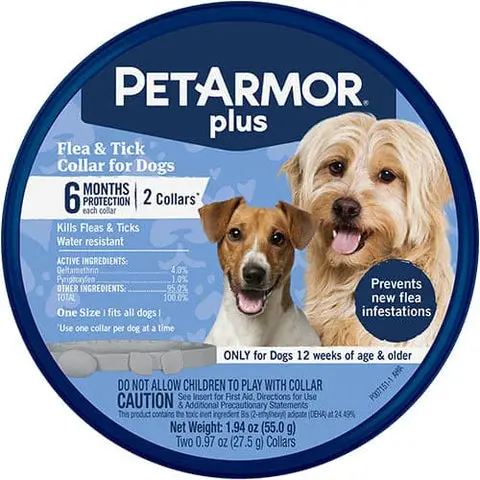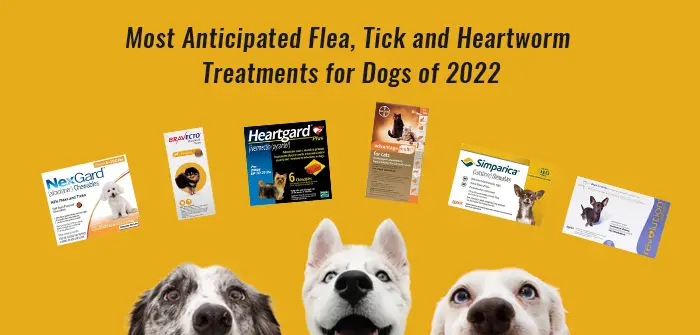Cheapest flea tick and heartworm prevention for dogs. The pursuit of the cheapest flea tick and heartworm prevention for dogs is a common desire among pet owners. We all want to ensure our furry companions are protected from the discomfort and health risks associated with parasites, but navigating the vast array of available products and their varying costs can be challenging. This article aims to guide you through the landscape of affordable pest prevention for dogs, exploring various options, considering potential dangers, and emphasizing the crucial role of veterinary guidance in making informed decisions that prioritize both cost and your dog’s health and well-being. We’ll delve into the importance of prevention, explore both online and offline resources, and ultimately empower you to make choices that are both budget-friendly and responsible.
Understanding the Importance of Preventative Care

The health and happiness of our canine companions are paramount. Protecting them from the detrimental effects of fleas, ticks, and heartworms is not just a matter of convenience; it’s a fundamental aspect of responsible pet ownership. These parasites can cause a range of health issues, from skin irritation and allergies to potentially life-threatening complications. Investing in preventative measures is a proactive approach that safeguards your dog’s well-being and can save you significant costs associated with treating more severe infections down the line.
The Risks Associated with Fleas, Ticks, and Heartworms
Fleas are tiny, wingless insects that feed on the blood of mammals, including our beloved dogs. They can trigger severe skin allergies, known as flea allergy dermatitis (FAD), leading to intense itching, scratching, and hair loss.
- Fleas can transmit various infectious diseases, including tapeworms, which can cause digestive issues and discomfort in dogs.
- A persistent flea infestation can lead to anemia, especially in puppies and younger dogs as fleas can suck a large amount of blood.
- The constant itching and discomfort caused by fleas can disrupt your dog’s sleep, making them restless and irritable.
Ticks are small, spider-like creatures that attach themselves to the skin of their hosts and feed on blood. They pose a significant risk to dogs because they can transmit serious diseases.
- Lyme disease, a bacterial infection that can cause fever, joint pain, and kidney problems.
- Rocky Mountain spotted fever, a bacterial infection that can cause a rash, fever, and muscle pain.
- Ehrlichiosis, a bacterial infection that can damage the immune system, organs and cause bleeding disorders.
- Anaplasmosis, a bacterial infection that can cause fever, loss of appetite, and lethargy in dogs.
Heartworms are parasitic worms that live in the heart, lungs, and blood vessels of dogs. They are transmitted through mosquito bites.
- Heartworm infection can cause severe damage to the heart, lungs, and other organs.
- Symptoms of heartworm infection can include coughing, weight loss, and difficulty breathing.
- Heartworm can be fatal if left untreated.
Why Prevention is Better than Treatment – cheapest flea tick and heartworm prevention for dogs
While treatment options exist for flea, tick, and heartworm infections, preventing these infestations is far more preferable and cost-effective. The cost of treating a severe infestation can be substantial, including veterinary visits, medications, and potentially hospitalizations.
- Preventing infections eliminates the discomfort and stress associated with the infestations.
- It reduces the risk of your dog developing severe or chronic health problems.
- It helps avoid the potential for dangerous secondary bacterial infections stemming from scratching and flea bites.
Furthermore, preventative treatments are often easier, more convenient, and less disruptive to your dog’s lifestyle than dealing with the repercussions of a parasite infestation. Regular use of preventative medications is often simpler than navigating the often challenging treatment process.
Investing in preventative care demonstrates your commitment to your dog’s overall health and well-being. While the upfront cost of preventative treatments might seem like a substantial expense, it pales in comparison to the potential financial and emotional burdens associated with treating severe infestations. Just as we prioritize regular checkups and vaccinations for our own health, proactive care for our dogs ensures they remain healthy, happy, and by our side for many years to come.
Exploring Affordable Treatment Options

A plethora of preventative treatment options are available for dogs, ranging from topical applications to oral medications and collars. Each option has its advantages and disadvantages, with varying levels of efficacy and convenience. It’s essential to carefully consider your dog’s individual needs, lifestyle, and your budget when making a choice.
Overview of Common Flea and Tick Treatments
The market offers a wide range of products designed to prevent flea and tick infestations. Some of the most common types of treatment include:
- Topical solutions: These are liquids or spot-on treatments applied to the dog’s skin, along the back of the neck or between the shoulder blades. These are a popular choice for their ease of use and widespread availability. The active ingredients in these treatments usually have a longer duration of effect and effectively kill fleas and ticks on contact. For instance, Frontline Plus is widely used and known for its affordability and efficacy against a variety of parasites. However, the effectiveness can depend greatly upon the specific product and the concentration of active ingredients.
- Oral medications: These chewable tablets or capsules are conveniently administered daily or monthly. Oral medications offer broad-spectrum protection, often targeting multiple parasites simultaneously, like some heartworm medications. Many pet owners find oral medications easy to administer, especially if their pets are fond of treats. A popular example is Nexgard, a broad-spectrum oral treatment that keeps dogs protected from fleas and ticks. As mentioned previously, these treatments usually offer protection for a longer duration compared to topical products.
- Collars: Flea and tick collars release active ingredients that diffuse across the dog’s skin and fur. They can provide long-lasting protection but might not be suitable for all dogs, especially those with sensitive skin. Collars can be a popular alternative for sensitive pets, especially since avoiding direct contact of the skin with topical products is sometimes better. The issue with collars is that some dogs may be allergic or sensitive to the components of these collars and it may trigger skin irritation. The effectiveness of the collar can also be compromised by weather conditions, especially if it becomes wet and drenched.
- Sprays: Flea and tick sprays offer a convenient way to treat your dog’s fur and environment. They can be effective for quickly addressing infestations, however, their duration of effectiveness can be limited. Sprays can be easy to apply and if used correctly they can effectively eliminate a large portion of fleas and ticks in a specific area, which makes it a valuable tool.
- Shampoos: Specialized shampoos can be used to kill fleas and ticks that have already infested your dog. They can work as a secondary line of defense alongside other treatments and help eliminate any remaining fleas after other treatments are done. They are specifically designed for dogs and are relatively safer compared to the conventional commercial shampoos that are used for humans.
Analyzing Heartworm Prevention Methods
Heartworm prevention requires a more structured approach than flea and tick control. The approach employed involves the administration of specific medications daily, monthly, or as needed with veterinarian approval.
- Oral medications: These come in palatable forms, such as chewable tablets or soft chews, and are a convenient option for most dogs. Oral medication is the most effective and convenient way to treat your dog against heartworm and it is also relatively safe. The only problem is that the medication must be taken by the dog on a regular and scheduled basis in order to prevent heartworm infection.
- Topical Solutions: Similar to flea and tick topicals, these products are applied monthly for protection. Topical solutions are usually very effective in treating heartworms however just as mentioned with flea and tick topicals, the effectiveness can vary depending upon a variety of environmental factors and if it is applied correctly.
- Injections: These are usually given by a veterinarian and may offer extended protection compared to other methods. Unfortunately, the cost of injections can be higher than other forms of heartworm prevention, especially if the dog requires regular administration of such products. The other issues are that the injections can cause discomfort and pain at the site of injection. It is often used for treatment of heartworm rather than for prevention.
It’s crucial to remember that the best heartworm prevention plan for your dog will depend on their individual needs, risk factors such as their lifestyle (dogs that spend a lot of time outdoors are at higher risk), and geographic location.
Online Retailers: A Cost-Effective Solution

The internet has revolutionized how we shop for goods and services, and pet supplies are no exception. Numerous online retailers offer a wide range of flea, tick, and heartworm prevention products at competitive prices, often providing substantial discounts compared to brick-and-mortar stores.
Benefits of Shopping on Websites like Amazon
Platforms like Amazon and other online retailers have transformed the landscape of pet product purchases, providing several advantages for budget-conscious pet owners.
- Wide Selection: Online retailers offer a wider array of products compared to local pet stores, enabling you to compare prices, product varieties, and read reviews from other buyers.
- Competitive Pricing: Online retailers often offer discounts and promotional deals on large quantities or subscriptions. This provides significant savings for those looking for the cheapest flea and tick prevention for dogs. The cost of shipping can sometimes offset the savings and it is important to factor it into the total cost of the purchase.
- Convenience: Online shopping offers a time-saving advantage. You can browse and purchase products from the comfort of your home, avoiding the need for trips to pet stores. It is also a convenient option for people who lead busy lifestyles or have dogs with anxiety or phobia of being introduced to a variety of different environmental settings.
- Information Accessibility: Product pages and reviews often provide detailed information about the products, such as their active ingredients, efficacy, and safety precautions. This level of information can help pet owners make a more informed decision when deciding on the cheapest flea and tick and heartworm prevention for their dogs.
- Subscription Services: Many retailers offer subscription options for regular deliveries of flea, tick, and heartworm prevention products. This ensures that you never run out and can help you take advantage of discounts associated with subscribing to the services.
Comparison of Prices Across Different Platforms
When comparing prices across different online platforms, it’s crucial to consider the factors beyond the initial purchase price, making sure you include shipping costs, taxes, and any potential hidden fees.
- Amazon: Often offers a wide selection of flea and tick prevention products at consistently lower prices compared to other platforms.
- Chewy: A popular online pet retailer that focuses mainly on pet food products but also offers a wide range of flea and tick and heartworm prevention solutions. The platform also offers auto-ship program at a discount price.
- Budget Pet Care: This platform offers specifically discounted products and discounts for a wide selection of dog products, including a wide variety of flea and tick as well as heartworm preventions.
When it comes to choosing, carefully analyze total costs and compare prices between platforms, paying close attention to shipping costs, taxes, and any other hidden fees.
Notable Brands Offering Budget-Friendly Products

Several trusted brands offer high-quality flea, tick, and heartworm prevention products at affordable prices, making it possible to achieve value and cost-efficiency without jeopardizing your dog’s health.
Nexgard: Effectiveness and Pricing
Nexgard is a popular oral flea and tick preventative designed to provide monthly protection for your dog. It’s known for its broad-spectrum efficacy, effectively combating adult fleas and ticks.
- Effectiveness: Nexgard’s effectiveness is attributed to its active ingredient, afoxolaner, a powerful insecticide and parasiticide. It kills fleas and ticks quickly after ingestion. The product is safe for dogs of all ages and breeds.
- Pricing: While the overall cost of Nexgard may differ across retailers, it’s often a reasonably priced option, especially when compared to other oral or topical products. It offers a good balance of effectiveness and affordability, making it a popular choice.
Bravecto: Long-Lasting Protection
Bravecto is another popular oral flea and tick preventative that offers longer-lasting protection compared to some other products. It’s often a good value proposition for pet owners who want to minimize the frequency of treatment administration.
- Effectiveness: Bravecto’s effectiveness stems from its active ingredient, fluralaner. It typically grants protection for up to 12 weeks against fleas and ticks. This extended duration of effectiveness can make it a cost-effective choice compared to monthly treatments.
- Pricing: While the initial cost of Bravecto might appear higher than some other products, the extended protection period it offers can make it a cost-effective option in the long run, especially for those who prefer less frequent applications.
Frontline Plus: Popularity and Value
Frontline Plus is a long-standing and broadly popular topical flea and tick preventative that offers a good balance between value and effectiveness. It’s suitable for a wide variety of dogs and is widely available in veterinary practices and online platforms.
- Effectiveness: Its active ingredients, fipronil and (S)-methoprene, target fleas, ticks, and other external parasites, making it an effective product for managing common infestations. It requires monthly application.
- Pricing: This is one of the cheaper options in the market, especially when purchasing from online retailers rather than traditional pet stores.
Cautionary Tales: The Dangers of Cheap Alternatives

While the allure of cheap alternatives is undeniably tempting, it’s crucial to acknowledge the potential risks associated with choosing solely based on price. Some less expensive options may contain ingredients that can have adverse effects on your dog’s health.
Potential Toxic Ingredients in Low-Cost Treatments
Certain inexpensive flea and tick treatments might contain toxic or inadequately tested ingredients. The primary goal of these manufacturers to produce a more cost-effective product may lead them to cut corners in quality control or ingredient selection, jeopardizing the safety of your dog.
- Organophosphate and Carbamate Insecticides: Some inexpensive products may contain these chemicals, which can be neurotoxic to dogs. The side effects can vary depending upon the exposure and can include nausea, vomiting, muscle tremors, or even seizures.
- Pyrethrins/Pyrethroids: Found in many flea and tick products, these can pose a threat to dogs with specific allergies or sensitivities. The reactions can vary depending upon the individual dog’s sensitivity and can include skin irritation, vomiting, convulsions, or loss of appetite.
Community Experiences and Warnings
Online communities and forums provide valuable insights into the experiences of other pet owners regarding various flea and tick treatments. Platforms like Reddit and Facebook dog owner groups often have discussions about the potential pitfalls of inexpensive flea and tick treatments. Some users have reported experiencing negative side effects with less-expensive products, highlighting the importance of doing your research and choosing reputable brands cautiously.
Balancing Cost and Efficacy

When selecting flea, tick, and heartworm preventative medications, it’s vital to strive for a balance between cost-effectiveness and efficacy. Choosing solely on price can sometimes lead to unforeseen complications and expensive veterinary visits.
Evaluating Long-Term vs. Short-Term Savings
The cheapest option might not always be the most economical choice in the long run.
- Consider the Duration of Protection: Products with longer-lasting effects can initially seem expensive compared to others but could translate into significant cost savings over time.
- Weigh the Risks of Potential Side Effects: Cheaper options that might compromise your dog’s health could lead to unexpected veterinary costs and complications, negating any initial savings.
Understanding the True Cost of Inadequate Protection
The “true cost” of inadequate protection extends beyond the initial purchase price.
- Veterinary Bills: A neglected or improperly treated parasite infection can result in unexpected veterinary consultations and treatments, often exceeding the amount you might have saved on cheaper options.
- Medication for Secondary Infections: If your dog develops a skin infection or allergies due to fleas or ticks, you might need additional medications, adding to the overall cost.
- Emotional Distress and Time: Dealing with an infected pet requires time and emotional expenditure, aspects we sometimes overlook when solely considering the price of the product.
By understanding the full scope of potential costs, you can make more informed decisions that effectively balance your budget with your dog’s health and well-being.
Comprehensive Care Beyond Flea and Tick Control

While flea and tick prevention are critical, it’s essential to broaden your perspective and integrate heartworm prevention into your overall pet care routine. Heartworm infections can have severe repercussions for your dog, making integrating prevention into your workflow critical.
Integrating Heartworm Prevention with Routine Care
Heartworm preventative medications are available in various forms, including oral, topical, and injectable options. The most suitable approach depends on your dog’s individual needs and your preferred method of administration.
- Regular Administration: Heartworm prevention typically involves consistent administration of medications, making adherence to a schedule vital.
- Veterinary Consultation: It’s recommended to have a thorough conversation with your veterinarian about the best strategy for your dog, considering their age, breed, and lifestyle. Consultations are important in helping a veterinarian tailor a plan for your dog and this often includes discussing other products outside of flea and tick products.
The Benefits of Multi-Prevention Packages
Numerous online retailers and veterinary practices offer packages combining flea, tick, and heartworm preventative products. These packages can streamline your buying experience and potentially provide greater value compared to purchasing each product separately.
- Convenience: Having all the necessary medications in a single package simplifies ordering and administration.
- Cost Savings: Packages can provide discounts compared to purchasing individual items, offering a tangible advantage when aiming for the most affordable options.
- Simplified Routine: A combined approach simplifies your schedule, reducing the potential for oversight and increasing adherence to treatment protocols.
While you can choose each product separate from one another, adopting a package approach for essential prevention is beneficial.
Veterinary Guidance: An Essential Resource

Veterinary professionals play a pivotal role in ensuring your dog receives the most appropriate and effective type of flea, tick, and heartworm prevention. Their expertise and knowledge are invaluable when navigating this often complex realm.
How Veterinarians Can Help You Choose Wisely
Before implementing any flea, tick, or heartworm prevention strategy, consulting with a veterinarian ensures the correct product for your dog’s size, age, and health condition is chosen.
- Tailored Recommendations: Veterinarians can provide recommendations that align with your dog’s unique needs, such as weight or health concerns.
- Potential Interaction Consideration: They can advise on potential interactions with other medications your dog might be taking, ensuring safety and effectiveness.
- Addressing Specific Concerns: Depending on your dog’s breed or geographic location, you might have specific concerns regarding particular parasites or diseases, which your veterinarian can appropriately address.
Access to Discounts and Lesser-Known Effective Products
Veterinarians frequently have access to exclusive discounts and programs on preventative medications that might not be widely advertised through traditional online channels.
- Access to Reputable Brands: There are lesser-known brands that offer high-quality and cost-effective prevention products. These can be recommended by your vet.
- Discount Programs: Through their relationships with distributors or manufacturers, vets might have access to specialized discounts or programs that can save you money.
DIY Solutions for Flea and Tick Control

While using commercially available products is often the most effective solution for comprehensive flea and tick prevention, some DIY options can complement these strategies.
Home Remedies: Safety and Effectiveness
There are several home remedies suggested for addressing flea and tick infestations. It’s vital to exercise caution and only use gentle, pet-safe methods.
- Apple Cider Vinegar: Diluting apple cider vinegar in water and spraying it onto your dog’s fur is frequently suggested but there is no scientifically supported evidence of its effectiveness. It could also pose a problem for dogs that have skin irritation or allergy.
- Lemon Juice: Another recommended home remedy is to combine lemon juice and water and spray it onto your dog’s fur. Similar to apple cider vinegar, lemon juice is not proven to be effective for flea infestations and it can be dangerous if ingested by the dog.
Grooming Tools: Comb and Shampoo Options
A regular grooming routine is a vital element of flea and tick control, especially in tandem with preventative medications.
- Flea Combs: These are designed to detect and remove fleas and ticks from your dog’s fur. They can be effective for removing adults from your dog’s fur and especially for those dogs with sensitive skin or allergies to topical products. It does not, however prevent fleas or ticks from coming into contact with your dog.
- Specialized Shampoos: Dog shampoos designed specifically for fleas and ticks can be used in conjunction with other preventative methods to eliminate or reduce the presence of fleas on your dog. Shampoos can also be a valuable tool for cleaning your dog’s fur and preventing accumulation of dirt and debris that can make your dog susceptible to flea infestation.
While DIY remedies can work as a tool on its own, they often work best in conjunction with commercially available solutions.
Seasonal Considerations for Pest Prevention
The risk of flea, tick, and heartworm infestation fluctuates throughout the year, primarily influenced by weather patterns and environmental factors. To optimize your preventative strategy, it’s essential to consider seasonal changes.
The Impact of Weather on Flea, Tick, and Heartworm Risks
- Warmer Temperatures and Humidity: Warmer temperatures and increased humidity promote flea and tick activity, making these seasons prime time for infestation.
- Mosquito Populations: Mosquitoes are prevalent during certain times of the year, leading to an increased risk of heartworm transmission. It is especially prevalent during wetter seasons, when the environment is moist and conducive to mosquito breeding.
Adjusting Preventative Measures Throughout the Year
- Spring and Summer: During these warmer seasons and in areas with high humidity, it’s essential to diligently administer flea and tick preventative treatments as directed by the product’s instructions or your veterinarian. Ensure your dog is treated regularly to protect your dog and decrease the chances of your dog getting infested with fleas or ticks.
- Autumn and Winter: While ticks and fleas are less prevalent during these colder months, you might still want to maintain a preventative treatment schedule based on your location and the recommendation of your veterinarian. During colder months it is easy to neglect your dog’s flea, tick and heartworm medication. However, certain dog breeds that have thick fur or those living in warmer climates still need treatment during the colder months.
- Monitor Your Location: Your location’s climatic conditions can impact the prevalence of parasites. Certain regions might experience higher flea or tick activity due to specific weather patterns or geographic characteristics. It is especially important for owners to stay up-to-date with weather patterns and environmental factors in their geographical area that can lead to a higher chance of flea and tick infestation.
Educating Yourself on Pet Health
Staying actively informed about parasite prevention is a critical responsibility for any dog owner. Accessing reliable sources of information can empower you to make well-informed decisions that safeguard your furry companion.
Resources for Learning About Parasite Prevention
- Veterinary Professionals: Your veterinarian is a primary source of reliable information about parasite prevention in your region.
- Reputable Online Resources: Organizations like the American Heartworm Society and the Centers for Disease Control and Prevention (CDC) offer valuable resources about preventing and treating various parasites.
- Pet Product Manufacturer Websites: The websites of brands offering flea, tick, and heartworm preventives often include educational content regarding their products and associated issues.
Importance of Staying Informed as a Pet Owner
Remaining up-to-date on parasite prevention practices benefits your dog’s health and your peace of mind.
- Changes in Prevalence and Resistance: In some areas, specific flea or tick species might become resistant to particular insecticides. Remaining informed about these changes can ensure that you’re using the most effective products.
- Emergence of New Parasites and Diseases: New parasite species or diseases impacting dogs might emerge. Keeping abreast of these developments ensures that you’re prepared to appropriately manage any potential risk.
By engaging with available educational resources, you actively contribute to your understanding of the ever-evolving landscape of parasite prevention and ensure the best possible care for your dog.
Monitoring Your Dog’s Health and Behavior
Regularly monitoring your dog’s health and behavior enables you to detect potential issues arising from flea, tick, or heartworm infestations early on. Identifying symptoms early facilitates prompt intervention and minimizing potential complications.
Signs of Flea or Tick Infestation
Be alert to the following symptoms:
- Excessive Itching and Scratching: If your dog is frequently scratching or biting at their fur, this could signal a flea or tick infestation.
- Redness and Irritation: Examine your dog’s skin for redness, inflammation, or areas of irritation.
- Presence of Fleas or Ticks: Conduct regular checks for adult fleas or ticks on your dog’s fur, particularly in areas like the neck, ears, and tail.
Recognizing Symptoms of Heartworm Infection
Heartworm infection can manifest in various ways, depending on the severity and stage of the infection.
- Coughing: Frequent or persistent coughing, especially after exercise, can indicate heartworm infection. It is the symptom that shows the most prominently among dogs with heartworm infection.
- Difficulty Breathing: If your dog experiences difficulty breathing, lethargy, or has trouble with exercise, it is important to seek the help of a veterinarian to determine the root cause of these issues.
- Weight Loss: Unexpected or persistent weight loss can also be a sign of heartworm infection. Dogs with heartworm might experience difficulty in digesting food.
It’s vital to consult with your veterinarian immediately if you notice any of these symptoms so proper diagnosis and treatment plan can be established and provided for the dog.
Building a Budget for Pet Care Expenses
Managing pet care costs involves a balance of planning for routine expenses, such as flea and tick prevention, and building financial contingencies to handle unexpected veterinary occurrences.
Allocating Funds for Preventative Treatments
- Annual Budgeting: Allocate a specific amount for preventative treatments on an annual basis. This helps in maintaining a consistent budget and to ensure that these essential products are readily available when needed.
- Prioritizing Preventative Care: Ensure that preventative treatments, such as flea, tick, and heartworm prevention, are included as a core expense in your pet care budget.
- Subscription Services: Consider using subscription services for auto-delivery of your chosen preventative products, ensuring consistent access and often taking advantages of discounts offered by the subscription services.
Planning Ahead for Annual Costs
- Factor in Veterinary Visits: Include costs associated with yearly checkups and potential consultations related to parasite prevention in your budget annually.
- Emergency Reserves: Ensure you have emergency funds allocated for unexpected veterinary visits, such as addressing a severe flea or tick-borne illness.
- Tracking Expenses: Track your current and future pet care expenses to develop an accurate understanding of your regular and potential expenditures related to pet care.
This comprehensive approach to budgeting ensures that you’re prepared for both regular and occasional pet care expenses, helping to minimize unexpected financial stress.
Conclusion: Making Informed Choices for Your Pet’s Safety
Choosing the cheapest flea tick and heartworm prevention for dogs is a balancing act. While fiscal responsibility is paramount, it’s crucial to ensure that it does not compromise your dog’s health and well-being. This article has provided a comprehensive guide to help navigate this delicate equilibrium.
By understanding the importance of prevention, exploring different treatment options, being cautious of potentially harmful alternatives, and leveraging veterinary expertise, you can effectively manage your pet’s health and reduce costs in a responsible manner.
Ultimately, your dog’s health and safety should be prioritized over sheer cost. By combining informed decision-making with regular monitoring and ongoing education, you can ensure that your dog lives a long, healthy, and happy life free from the discomforts and risks associated with fleas, ticks, and heartworms.

